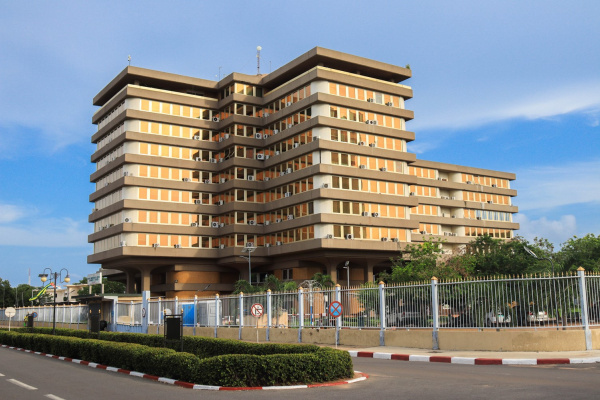Ethiopia has thrown open the doors of its banking sector to foreign investors, signaling one of the most dramatic steps yet in the country’s broader push to reshape its economy. In an announcement that could alter the financial landscape of Africa’s second most populous nation, the National Bank of Ethiopia said foreign banks and investors can now formally apply for licenses to operate in the country. This marks the first time international lenders will have a direct pathway into Ethiopia’s tightly guarded financial sector.
The move follows a landmark law passed by Ethiopia’s parliament in December 2024, which for the first time allowed foreign financial institutions to set up subsidiaries, open branches or representative offices, and buy equity in existing local banks. However, the new rules cap foreign ownership in domestic banks at 40 percent, reflecting Ethiopia’s cautious approach even as it signals a willingness to embrace outside capital.
This latest decision underscores the ambitions of Prime Minister Abiy Ahmed’s government to overhaul an economy that has long been shackled by state controls. Over recent years, his administration has embarked on sweeping reforms, from liberalizing the telecoms sector—paving the way for Safaricom to become Ethiopia’s first major foreign mobile operator—to entering a four-year, $3.4 billion agreement with the International Monetary Fund aimed at stabilizing the economy and rolling out structural changes. Those include floating the Birr currency and renegotiating billions of dollars in external debt.
The decision to open the banking sector could prove the boldest reform yet. Ethiopia’s economy, with a GDP of roughly $156 billion, is one of the largest in sub-Saharan Africa. But its banking sector remains shallow and undercapitalized, with total industry liquidity estimated at just around $23 billion. The sector is also heavily concentrated: the state-owned Commercial Bank of Ethiopia holds more than half of all deposits and loans, crowding out smaller private players. Foreign banks have until now been kept entirely out, with only limited representative offices allowed to exist without offering actual banking services.
By allowing international lenders in, Ethiopia hopes to attract fresh capital, modernize its banking technology, and expand credit options for businesses and consumers. This is expected to support broader economic growth and help ease some of the heavy public debt burdens that have forced the country into talks with the IMF and other creditors.
There is also a clear political dimension. The government faces high youth unemployment and persistent foreign exchange shortages. By opening banking to global competition, officials are betting that new investment will inject much-needed confidence and resources into the economy, helping to stabilize the currency and deepen financial inclusion. This is particularly urgent after years of economic strain worsened by internal conflicts and external shocks.
But it is equally important to look at why Ethiopia is making this move now. Mounting debt pressures have limited the government’s ability to continue funding growth through state-led borrowing. Foreign exchange reserves are thin, while inflation remains stubbornly high. Bringing in foreign banks could offer relief by diversifying capital inflows and reducing reliance on traditional bilateral and multilateral lenders. In short, the country is opening up partly out of necessity.
Who will seize the opportunity? Nigerian banks have been among Africa’s most aggressive regional players, with institutions like Access Bank and Zenith Bank actively expanding into new markets. They have experience operating in environments with regulatory uncertainty and underdeveloped infrastructure, traits that could give them an edge in Ethiopia. On the other hand, South African banking giants like Standard Bank and FirstRand have deeper capital bases, advanced digital platforms, and long experience serving multinational clients. Both could find Ethiopia attractive, albeit for slightly different reasons.
For Nigerian banks, Ethiopia represents a vast untapped retail and SME lending market. They would be looking to bring in mobile-driven banking models and micro-lending products that have proved successful at home. South African banks, by contrast, may see bigger opportunities in corporate banking, infrastructure financing, and supporting international businesses entering Ethiopia.
But all would be assessing the same crucial factors: the stability of Ethiopia’s regulatory environment, the enforceability of contracts, and whether the country’s legal system can effectively handle banking disputes. Ethiopia’s financial laws are still evolving and its courts lack the long track record of resolving complex commercial cases found in more mature markets. That could be a deterrent, especially for banks wary of getting entangled in costly legal uncertainties.
There is also the question of how “financialized” the Ethiopian economy truly is. Despite strong headline GDP growth over the past decade, large parts of the country remain outside the formal financial system. Millions of Ethiopians do not use bank accounts. This could mean enormous potential for growth—but also considerable upfront costs in building trust, rolling out branch networks, and educating consumers about formal banking services.
In opening up its banking sector, Ethiopia is undoubtedly taking a calculated gamble. The promise is clear: new investment, better financial products, and closer integration with global capital markets. But the risks are equally real. A rush of foreign banks into an under-regulated sector could destabilize local lenders, especially if competition leads to reckless lending in pursuit of quick profits. The government’s 40 percent cap on foreign ownership seeks to strike a balance by protecting domestic control, but its effectiveness will depend on robust enforcement by the central bank.
What Ethiopia is doing sends a powerful message about its economic direction. It wants to be seen as open for business and serious about structural reform. Whether this will pay off in sustained growth and more diversified prosperity depends on how carefully it manages the influx of foreign capital and whether it can build the institutional capacity to oversee a more complex, globally connected financial system. In that sense, the country’s experiment with banking liberalization is not just about money. It is a test of whether Ethiopia is truly ready to transform the foundations of its economy.




